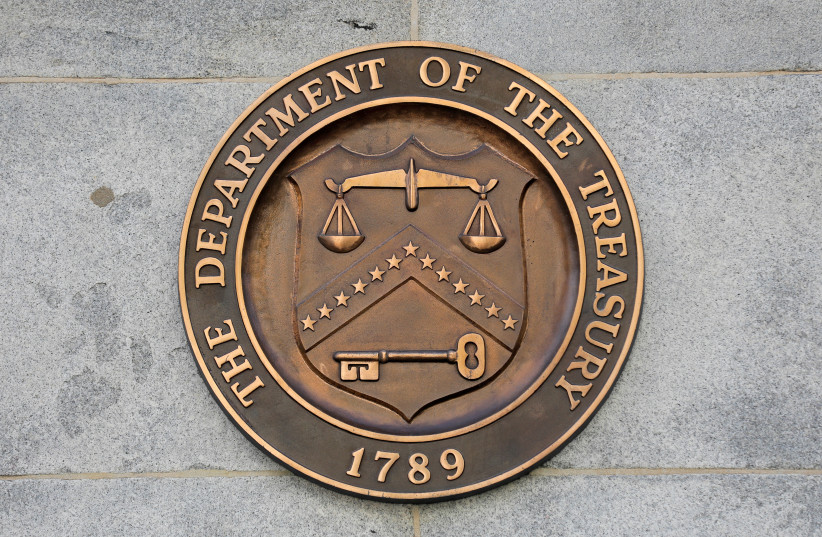WASHINGTON – The US Department of the Treasury’s Office of Foreign Assets Control (OFAC) announced on Thursday that it would designate “a network of five companies and one individual for supporting Iran’s unmanned aerial vehicle (UAV) procurement efforts.”
The newly announced designation would impact the sale and shipments of UAV components to Iran. "The United States will continue to use every tool at our disposal to disrupt these efforts and work with allies and partners to hold Iran accountable for its actions," Secretary of State Antony Blinken said in a statement.
According to the Treasury’s announcement, this Chinese-based network “is responsible for the sale and shipment of thousands of aerospace components, including components that can be used for UAV applications, to the Iran Aircraft Manufacturing Industrial Company (HESA).”
“Iran is directly implicated in the Ukrainian civilian casualties that result from Russia’s use of Iranian UAVs in Ukraine.”
Brian Nelson
“Iran is directly implicated in the Ukrainian civilian casualties that result from Russia’s use of Iranian UAVs in Ukraine,” Under Secretary of the Treasury for Terrorism and Financial Intelligence Brian Nelson said in a statement. “The United States will continue to target global Iranian procurement networks that supply Russia with deadly UAVs for use in its illegal war in Ukraine.”
The companies: Koto Machinery, Raven, Guilin Alpha, S&C Trade and Caspro are all being designated “for having provided, or attempted to provide, financial, material, technological or other support for, or goods or services in support of, HESA”

According to the Treasury announcement, one of the companies, Hangzhou Fuyang Koto Machinery Co., a China-based company, “used its business infrastructure to facilitate the sale and shipment of aerospace components, including light aircraft engines applicable for Iran’s Shahed series UAVs, to HESA in Iran.”
“To obscure its activity, Koto Machinery used Hong Kong-based front company, Raven International Trade Limited (Raven), to facilitate transactions worth millions of dollars for aerospace components,” the statement reads.
As a result of the designation, all property and interests in property of the individuals and entities that are in the United States or in the possession or control of US persons must be blocked and reported to OFAC.
Also on Thursday, the United States imposed sanctions on 39 entities, including many based in the United Arab Emirates and Hong Kong, that Washington said facilitate Iran's access to the global financial system, describing them as a "shadow banking" network that moves billions of dollars.
The US Treasury Department in a statement said those targeted had granted companies previously slapped with Iran-related sanctions, such as Persian Gulf Petrochemical Industry Commercial Co. and Triliance Petrochemical Co., access to the international financial system and helped them hide their trade with foreign customers.
The latest US move against Iran comes as efforts to revive the 2015 nuclear deal have stalled, while ties between the Islamic Republic and the West have become increasingly strained as Iranians keep up anti-government protests.
Previous US actions against Iran-linked Chinese companies
Washington has targeted Chinese companies over the export of Iran's petrochemicals as the prospects of reviving the nuclear pact have dimmed.
"Iran cultivates complex sanctions evasion networks where foreign buyers, exchange houses, and dozens of front companies cooperatively help sanctioned Iranian companies to continue to trade," said Deputy Treasury Secretary Wally Adeyemo, according to Reuters.
He said the new measures showed the US commitment to enforcing sanctions and its "ability to disrupt Iran's foreign financial networks, which it uses to launder funds."
Liu Pengyu, spokesman for China's embassy in Washington said the US actions had no basis in international law and were "typical unilateral sanctions and illegal 'long-arm jurisdiction'" that were detrimental to Chinese interests.
"We deplore and reject this move," he said, adding China had "actively promoted peace talks and sought a political solution" in Ukraine, while the United States "has been fanning the flame and fueling the fight with more weaponry."
Reuters contributed to this report
